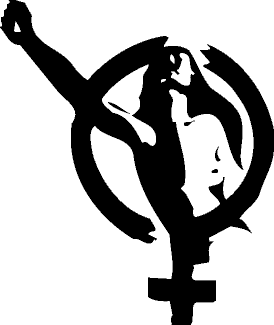Memorandum to the Batticaloa
District Disaster Operational
Committee!
Concerns of Displaced
Women’s Welfare and Rights!
From the ‘Women’s Coalition
for Disaster Management-Batticaloa!
 [12th
January 2005] We acknowledge that government officials and other agencies
are under pressure and over worked in addressing the enormity of issues
that have arisen since the disaster. Therefore we the Women’s Coalition
for Disaster Management would like to offer our expertise and resources
to enhance long term plans with regard to the welfare of displaced people.
We recognise that this is a moment in time where all groups in the Batticaloa
district should work together. [12th
January 2005] We acknowledge that government officials and other agencies
are under pressure and over worked in addressing the enormity of issues
that have arisen since the disaster. Therefore we the Women’s Coalition
for Disaster Management would like to offer our expertise and resources
to enhance long term plans with regard to the welfare of displaced people.
We recognise that this is a moment in time where all groups in the Batticaloa
district should work together.
We wish to draw your attention
to our serious concerns about the current arrangements for the welfare
of persons displaced in the aftermath of the tsunami that hit Batticaloa
on 26th December 2004. We are alarmed that decisions are being made
about temporary re-location of displaced people with neither sufficient
consultation nor adequate regard for their wishes. Decision-making
must take into account the opinions and concerns they will have about the
types of shelter, livelihood opportunities, social support and physical
security and psychological attachments to their home area and community.
This consultation process
must recognise the diversity of displaced populations, where a single camp
will often contain many groups with different needs and special requirements.
These differences would include gender, age, cultural background, socio-economic
status and means of income. Different groups will require different
solutions. We, the Women’s Coalition for Disaster Management, call
for the consultation of displaced women in decision-making about temporary
and long-term arrangements for their welfare.
We request that you take
into consideration the following:
-
Decisions about relocation
must recognise women’s livelihoods, which are often different to those
of men and which may be linked to the physical environment and social context
of their original community.
-
The physical security of women
and their children will be far greater in areas that are well-known
to them and where they have strong social resources. Relocating
women to unfamiliar areas will also have negative implications for their
psychosocial and emotional status in the aftermath of a terrible natural
disaster. For example, women who are able to access familiar religious
sites, markets, hospitals or dispensaries, relatives, friends and other
resources will be far less vulnerable to abuse, exploitation and psychological
distress.
-
Women who have become heads
of households due to the loss of family members must be especially consulted
about their relocation needs and wishes.
-
Women in camps have expressed
to us their discomfort and fears due to living in a camp situation in close
proximity to unknown men. There is a lack of measures to ensure privacy,
such as separate women’s areas where they may change, bathe, sleep or feed
babies. We recommend that every location for housing displaced
persons be provided with designated (and monitored) spaces for ‘Women Only’.
-
Women are particularly concerned
about the alcohol consumption by men in camps, as this increases the risk
of sexual harassment, abuse and violence. We recognise
that increased alcohol use is linked to the loss of men’s opportunities
for productive work and usual social roles. Measures must be taken
to both protect women through security arrangements as well as preventative
mechanisms to engage men within useful and fulfilling activities in and
outside the camps.
-
Women’s committees must be
set up in each location for displaced persons and all committees in the
camps must include women representatives. Women have different
needs from men and these views must be taken into account when making decisions
about camp life.
-
Women and girls’ reproductive
health needs require special measures. We recommend that regular
clinics for women (only) be held at each location, preferably with an all-female
medical team. Special attention must be given to the needs of
pregnant and feeding mothers.
-
Timely and clear information
must be made available to women directly to avoid confusion, fear and
a dependency on rumours and dominant figures in the camp. This is
particularly important with regards to registering people, upcoming
medical clinics, provision of rations, legal status, compensation prospects
and future administrative plans for the camps and displaced persons.
-
We wish to reiterate that all
the above measures will have profound benefits for the psychosocial wellbeing
of women who have suffered terrible losses due to the tsunami. Placing
women’s concerns at the centre of decision-making processes will enhance
their ability to cope and will prevent secondary psychosocial damage.
The above recommendations and
concerns are all supported by the Sphere Guidelines for Humanitarian Assistance,
UNHCR standards and emerging accounts from other affected parts of the
island. We call for the inclusion of women representatives from the
different resettlement locations, and women representatives from local
women’s organisations in all local and district level decision-making bodies.
Contact address:
Women’s Coalition for Disaster
Management-Batticaloa,
C/O Suriya Women’s
Development Centre, 20 Dias Lane, Batticaloa,
e mail: wcdmbatti@yahoo.com
Tel: +94-65-2223297,
e mail: suriaw@slt.lk
And
Prevention of Gender based
Violence Project, CARE International No: 221, Bar Road, Batticaloa
List of Signatories:
Suriya Women’s Development
Centre
Women’s Development Forum
Prevention on Gender Based
Violence Project – Care International
Nertra – Kirankulam
OXFAM Community Aid Abroad
OXFAM GB
Thirupperunthurai Community
Development Organisation
Koralaipattu North Development
Union
Peoples’ Welfare Association
- Kiran
Campaign for Ending Violence
Against Women Network
Working Women’s Development
Foundation
Women’s Coexistence Committee-
Foundation for Coexistence |
|